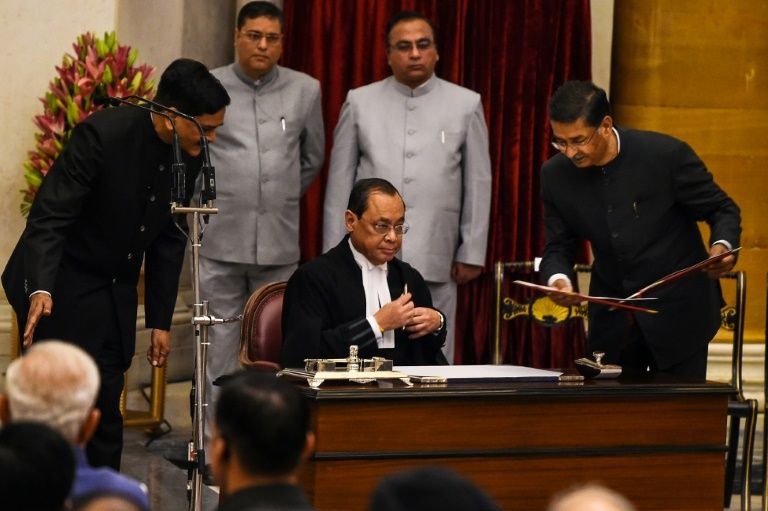India’s most senior judge hit back Saturday at sexual harassment allegations made by a former Supreme Court employee, calling the accusations “unbelievable”.
Chief justice Ranjan Gogoi said the accusations made by a 35-year-old junior court assistant were an attempt to stop him hearing important cases.
The 64-year-old called a special session of the country’s highest court and said it was below his dignity to deny the allegations, which he said were provoked by “bigger forces”.
The woman wrote to 22 Supreme Court judges on Friday, alleging Gogoi twice made unwanted sexual advances against her in the office inside his official residence in October last year.
“He hugged me around the waist, and touched me all over my body with his arms and by pressing his body against mine, and did not let go,” she wrote in the affidavit seen by AFP.
The woman also claimed she was dismissed from her job and her family was subjected to harassment after she rebuffed Gogoi’s advances.
She has called on the Supreme Court to set up a “special inquiry committee” to look into her affadavit.
“I have taken this unusual and extraordinary step of sitting in court today because things have gone too far,” Gogoi said in response. “The judiciary can’t be made a scapegoat.”
The chief justice, who is due to retire in November this year, said he would continue his work “without any fear”.
“There are forces that are trying to destabilise the judiciary… there are bigger forces behind these allegations hurled at me,” he told the special hearing, adding that the woman had a criminal background.
The controversy came amid a mounting #MeToo movement in India that has seen several Bollywood directors, actors and media figures accused of sexual harassment.
A junior foreign minister was forced to resign last year after several women accused him of harassment.
The Supreme Court has 25 judges appointed by the president, including the chief justice.
One of the country’s most respected institutions, the Supreme Court often rules on key policy matters and orders measures citing the public interest.




